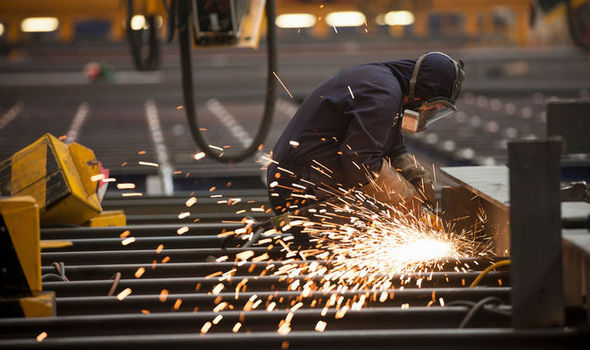
Autumn without doubt is the busiest season of the year. There is so much to do across the board, from drilling, hedge cutting, planting bulbs, feeding and bedding up cattle, and drainage work. As well as loading grain trucks heading for the ports, and winterising the gardens.
There are barely enough hours in the day now that daylight is at a premium. We could well do with more man power as the jobs stack up, and for certain tasks it is a race against time as we try to get things done on time before the winter sets in and the rain returns. The weekend was spent preparing the ground and drilling winter beans. The seed bed is barely dry enough as the odd shower and heavy dew leave the soil sticky.
It is easy to assume everything is running smoothly but inevitably the unexpected crops up. These things tend to take time to sort out and are generally expensive.
Machinery can break down, requiring costly repairs, and when essential services fail at residential properties, it is crucial to get things fixed immediately, which can often result in putting other jobs, we may consider more urgent, on hold.
Buildings designed for agricultural purposes, now converted into offices, sometimes fail to live up to 21st century expectations which tenants can find unacceptable. In the latest case, quotes to re-roof, in order to cure a persistent damp problem, is keeping me awake at night.
It is interesting to compare the UK Steel industry with agriculture. This past week as steel works in Redcar and Scunthorpe face closure, mothballing and redundancies, there are demands that Government Ministers acts to intervene.
Just as with agricultural produce, there is a world-wide glut of steel. China is now saturating the global market, which has dramatically pushed down the price of steel. It is now impossible for British steel producers to compete as productions costs, in particular energy costs, escalate due to successive government’s obsession with meeting the targets of the ‘Climate Change Act’. Putting British producers at a huge disadvantage.
The steel industry, like agriculture, has multiple dependant businesses which will not escape the fall out of these closures and redundancies. When international conglomerates such as Tata are feeling the pinch, things do not bode well for the industry. Ministers will need to act fast if they are to rescue some of these vital industries and jobs.
Perhaps this is a good time to visit some of our universities. They will find some of our brightest and inventive brains within the walls of these institutions. I would hazard a guess, they could well find some interesting inventions which would be well worth exploring.
Too often innovations in engineering, manufacturing and science created in these seats of learning, have failed to find adequate funding from government or industry in the UK. Stories of brilliant inventions which could transform our industries have been sold abroad, often to China.
The target should be to remain self-sufficient in the production of food, energy and commodities such as steel, in the long term. However in the short term, the matter of guaranteeing a level playing field with our international competitors, and an appropriate market place to sustain production is surely a priority.
How to weather the current financial storm, if it continues for too long, is a major dilemma. It will be interesting to see if those calling for Government to intervene and support the steel industry will be acted upon more readily than those who have spoken up for British agriculture.
Reports continue to trickle out of Milan’s Food Expo. It appears that the event has been largely dominated by international food retailing conglomerates. And the events promoting innovative and sustainable food have largely been kept to the fringes.
However, ‘Farming’ insects as a source of protein has attracted attention. There is apparently already quite an industry creating basic foods and Gin from insects, including ants
Patrick Holden the Director of Sustainable Food Production said that until staple food prices rise significantly, food waste will continue to be a major issue. He also believes that young people will increasingly be responsible for driving down the dominance of the huge international food producers, as they increasingly lean towards slow foods, local produce and sustainable food production.
Furthermore he predicts that there will be a natural return, in time, to mixed farming. In time reversing the current trend towards mass production which is driven by economies of scale. A trend he considers to be unsustainable in the long run.
Carola Godman Irvine

 RSS Feed
RSS Feed